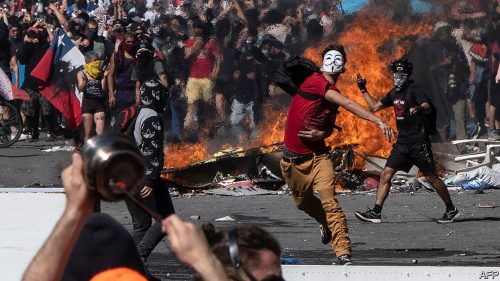Class Notes-02/26/2020
Populism
We started with announcements of events happening on campus. Information regarding events are on the blog. Professor Holt went through a couple of slides that helped further explain Populism and what that entailed, including how people were affected by it. We broke into small groups to discuss one person from the reading. Afterwards, reported back how we analyzed the reading.
Historical questions: What is populism? What appeals did Latin American populists make to appeal to newly enfranchised citizens?
Key terms: Populism, ISI, and Conventillos
Populism: “is an appeal to the excluded” Populists claim to represent a neglected majority by defying an undeserving but powerful minority. Populism-reaction to structural inequality. Erosion of the rule of law. Manipulation of office-holding. Who is really benefiting from this? The people? Or people who can or do hold power?
Import Substitution Industrialization (ISI:1930-1960): Replacement of foreign imports with domestically produced industrial produces.
Conventillos: Urban tenement in Argentina during the 19th century. People were emigrating from Europe, specifically Spain and Italy. These homes were on the rise for the working class. Those homes were very simple in appearance and very limited in function.
Isolation of Latin American countries regarding trading; exports and imports. There was more shock with the Depression of 1929. This includes export crisis-unemployment, bankruptcy, liquidity crisis, higher interest rates, and etc. Foreign debt was prevalent within this time period. It was easier to ramp up production to meet demands. Work entailed relatively unskilled labor. For example, textile, pharmaceuticals, etc. Government does this through high tariffs (Like the U.S). Focus is really on cheap labor. Focus is on things where you can start manufacturing through cheap labor, like textile work. They pay workers so little, the workers cannot become a middle class, meaning they cannot take part in being consumers. Consolidation of the state, where the state is becoming much more involved in workers’ lives. Worker-Domestic consumption. There is continuation of a Paternalistic role regarding Perón. Eva Perón in France truly showcased her glamorous lifestyle. There seems to be a historical weird role that first ladies play. Eva’s claim: I have no choice; it was thrusted upon me. She originally didn’t intend to pursue a place in the women’s political movement. But she eventually just had to help be an activist in the movement. She wanted to make a home for women in the movement, like temperance, or women organizing around abolition. These are all parallels. Women’s roles in these movements are like “I want to speak out, but I know my place.” Eva Perón’s actions didn’t feel realistic. It was all very performance-like.
Websites:
https://awpc.cattcenter.iastate.edu/directory/eva-peron/
https://www.investopedia.com/terms/i/importsubstitutionindustrialization.asp
Questions:
What is populism and how did populism affect people’s lives?
What is Import Substitution Industrialization and how is it implemented/how can one identify it?
Like Eva Perón, what were women’s roles in the political movement and what were their attitudes toward being involved in said movement?
